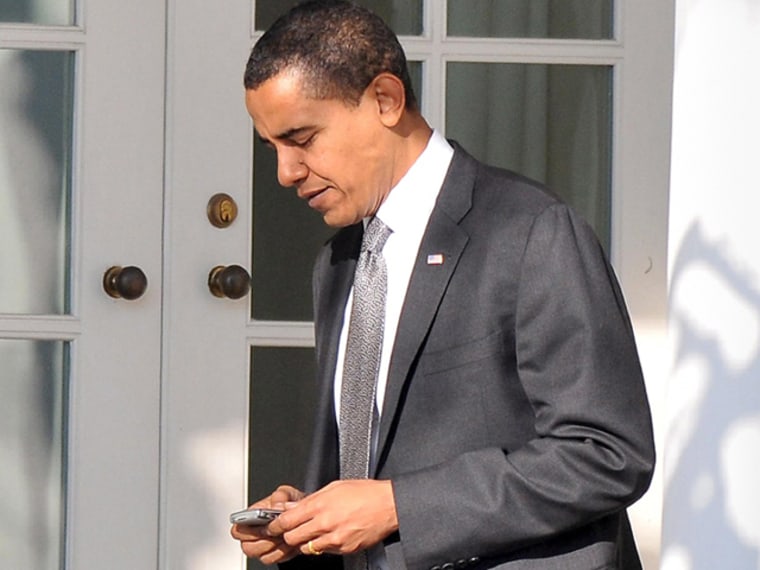There's one geographic area where the BlackBerry still is thriving, although for how long remains to be seen: Washington, D.C., where politicians — including the president — bureaucrats and government workers very much rely on the smartphones that once were a status symbol, but now are viewed by many as antiquated tools of the trade.
A half-million federal workers still use BlackBerrys, writes Cecilia Kang in The Washington Post, and that the number hasn't changed in the past few years, while the rest of the country has moved on to smartphones like the iPhone and Android devices, which offer a better Web-browsing experience and hundreds of thousands of apps for users.
Research in Motion, maker of BlackBerrys, has been struggling against the tide and losing. In recent weeks, the Canadian-based company said it will turn its focus to what it does best: making secure devices that have superior QWERTY hardware keyboards, especially useful for those who email and instant message a lot.
As an example of how much has changed in the past three years, when President Barack Obama took office in January 2009, it was big news that he was going to be using a BlackBerry in office, the first time a U.S. president was insistent about using (what was then) such modern technology. At that time, the iPhone had been out for about a year-and-a-half and was quickly growing in popularity; and Android phones were just getting under way.
Three years later, Android-based phones lead the U.S. smartphone market with a 48 percent share, while Apple's iPhone is at 32 percent, and BlackBerry is at 11.6 percent, according to a report last week from Nielsen. And among those who bought their smartphones in a recent three-month period, 48 percent said they chose Android, 43 percent an iPhone and only 5 percent BlackBerry.
Some federal agencies, Kang writes are "loosening their policies to let their workers choose other smartphones. Lawmakers and aides can now bring iPhones into the halls of Congress."
But the BlackBerry still holds sway in the nation's capital.
“We appreciate RIM’s focus on security, which is paramount for government use,” Casey Coleman, chief information officer at the General Services Administration, told the Post. While the GSA has given some iPhones and Android phones to staffers, "the vast majority of its 12,000 agency-issued smartphones are BlackBerrys," noted Kang.
Of course, parents themselves aren't always paragons of virtue when it comes to kids and Facebook: There's the now-famous dad who shot up his daughter's laptop because of what she posted about him on Facebook, and
ad;kfa;dj;a
Related stories:
- BlackBerry giving up on the consumer market
- Half of US cellular subscribers own smartphones: Nielsen
- New RIM security software a sign BlackBerry is over?
- RIM gets sued over BlackBerry outage
- Obama gets to keep his BlackBerry
Check out Technolog, Gadgetbox, Digital Life and In-Game on Facebook, and on Twitter, follow Suzanne Choney.
